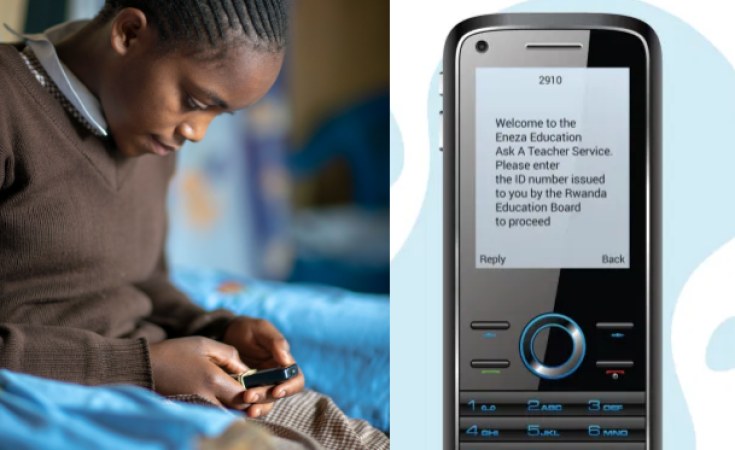One of the many ways different companies stay relevant and on top of their game is by providing efficient and flexible services at the right time.
Regarding that, a Kenyan-based education technology startup, Eneza Education, has propelled its services into the walls of Rwanda.
Eneza Education, through its partnership with MasterCard Foundation, has introduced its SMS-based learning platform, Shupavu, to the residents of Rwanda.
The startup states that the innovation aims to engage students with their studies as they await the re-opening of schools.
Eneza Education, which started operations in 2013, has a reputation of providing students with learning materials through mobile phones, no matter how basic.
Already, the startup has been operating in other African countries like Kenya, Ghana, and Ivory Coast, before the move to penetrate Rwanda.
As part of the MasterCard Foundation COVID-19 Recovery and Resilience Program, Eneza Education has officially launched the Shupavu learning platform in Rwanda.
The move aligns with the commitment of the Mastercard Foundation to provide emergency support for health workers, first responders, and students.
The Foundation is also dedicated to reinforcing diverse firms that are first in the line of defence against the social and economic effects of the deadly virus.
The SMS-focused learning platform has a significant feature called ‘’Ask a Teacher’’. The feature enables students to throw questions to a host of teachers and receive responses via SMS.
‘’We have the privilege of serving millions of learners across Kenya, Ghana, and Ivory Coast, and we look forward to serving more within the walls of Rwanda. We hope learners in Rwanda will find our ‘’Ask a Teacher’’ function very helpful at this time,’’ says CEO of Eneza Education, Wambura Kimunyu.
Also, the startup revealed that starting November 1, learners will have access to lessons and quizzes that align with the Rwanda curriculum.
The service, which is accessed using the 2910 SMS shortcode on any MTN network, will be free to students in upper primary and lower secondary education levels until July 2021.



